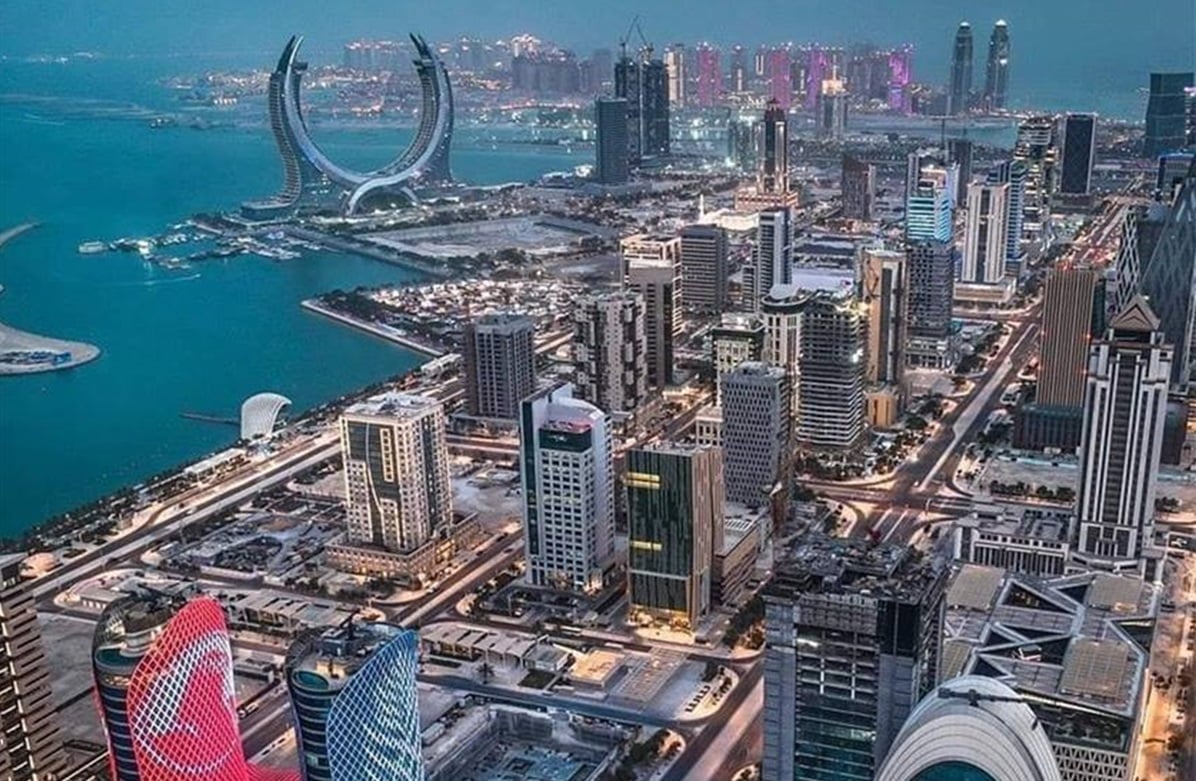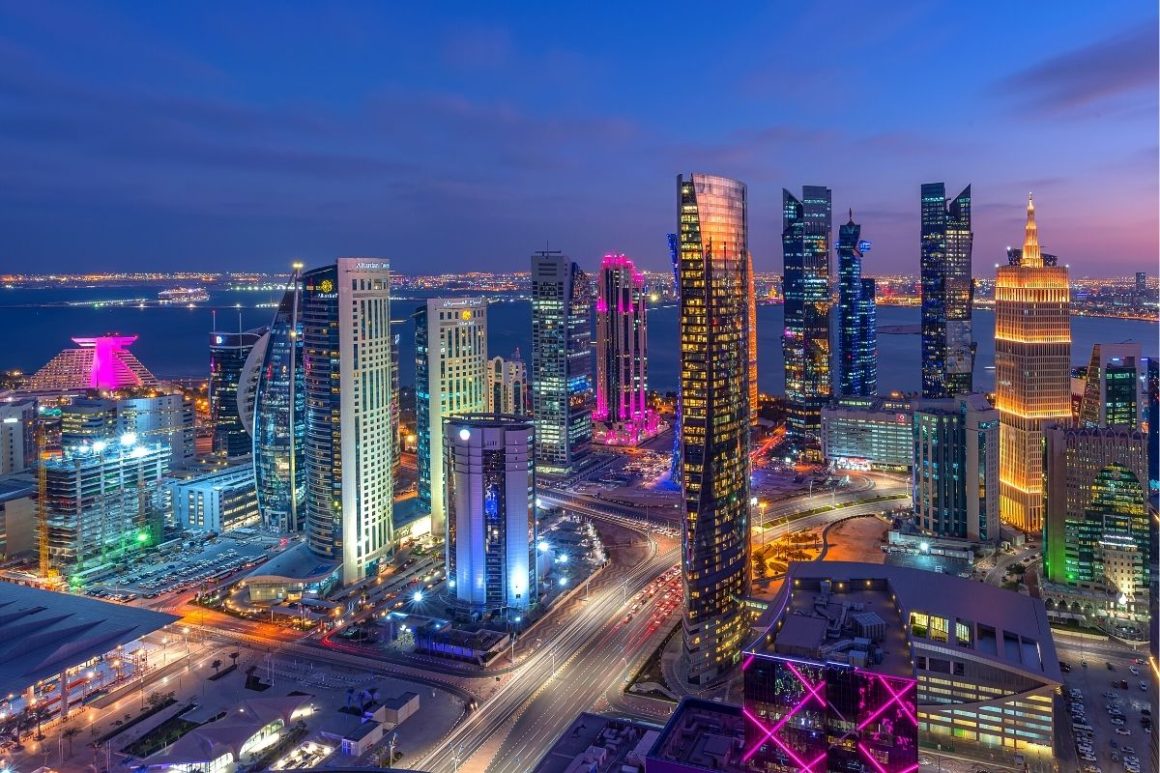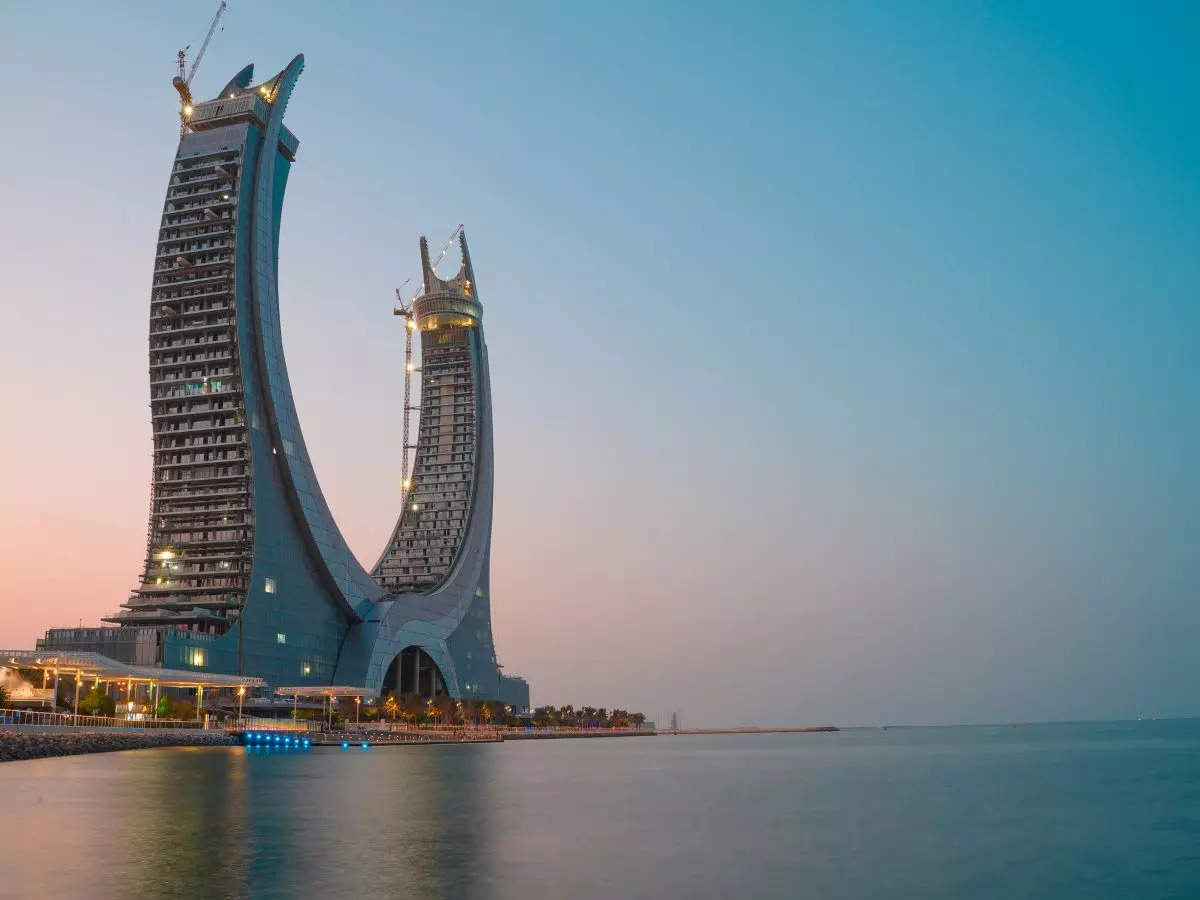Incorporate A Company In Qatar In 2025

Qatar, a peninsular nation located in the Arabian Gulf, is a global symbol of rapid development and modernization. The country has transformed itself into a global hub for finance, sports, and tourism, exemplified by hosting major events such as the FIFA World Cup 2022. Governed by a monarchy, the country blends traditional Islamic culture with progressive policies, making it a unique destination for expatriates and investors alike.
Standard of Living in Qatar: A Benchmark of Excellence
The Gulf nation offers one of the highest standards of living globally, fueled by its wealth derived from natural resources. The country consistently ranks among the richest nations in terms of GDP per capita. Residents enjoy access to top-tier healthcare, exceptional education, and state-of-the-art public amenities. Housing options range from luxurious villas to modern apartments, catering to diverse tastes and budgets. Moreover, expatriates make up a significant portion of Qatar’s population, contributing to a multicultural society where traditions coexist with a cosmopolitan lifestyle. Recreational activities, shopping malls, and entertainment options abound, enhancing the quality of life for residents.
Personal Taxes in Qatar: A Tax-Free Haven
One of the most attractive features is its tax-free personal income policy. Residents and expatriates are not subject to income tax, making it an appealing destination for professionals seeking lucrative job opportunities. This tax-free framework extends to other personal earnings, such as bonuses and allowances, enabling residents to retain a significant portion of their income.

In addition to the absence of personal taxes, Qatar offers a range of other financial benefits, such as low-cost utilities and government-subsidised services. However, value-added tax (VAT) at a rate of 5% is levied on specific goods and services, aligning with the Gulf nation’s commitment to diversifying its revenue sources without burdening individuals heavily.
Corporate Taxes in Qatar: A Balanced Approach
The Gulf nation’s corporate tax system is structured to attract international businesses while ensuring fair contributions to the economy. Companies that operate within Qatar are subject to a standard corporate tax rate of 10% on profits derived from local activities. However, businesses operating in specific sectors, such as oil and gas, may face higher tax rates, reflecting the industry’s profitability and strategic importance to Qatar’s economy.
Foreign companies earning income from the Gulf nation are generally taxed on their local earnings unless exempted under international treaties or agreements. Additionally, Qatar imposes withholding taxes on certain payments to non-residents, such as royalties and technical service fees.
To encourage foreign investment, the Gulf nation offers special economic zones and tax-free incentives in designated areas like the Qatar Financial Centre and the Qatar Free Zones. These zones provide exemptions from corporate taxes, customs duties, and restrictions on foreign ownership, fostering a business-friendly environment.
Major Industries in Qatar
Qatar’s economy is heavily reliant on its natural resources, but it is also diversifying to create a sustainable future. The major industries include:
- Oil and Gas:
The Gulf nation’s energy sector is the backbone of its economy, contributing over 50% of the GDP. The country is the world’s largest exporter of liquefied natural gas (LNG), thanks to its vast reserves in the North Field. Companies like QatarEnergy dominate this sector, driving international partnerships and technological advancements. - Construction and Infrastructure:
With events like the FIFA World Cup 2022, the Gulf nation has invested billions in infrastructure development. Projects like Lusail City, Hamad Port, and the Doha Metro have bolstered the construction sector, creating job opportunities and stimulating economic growth. - Finance:
Qatar’s financial services industry, anchored by the Qatar Financial Centre (QFC), attracts global firms with tax incentives and a well-regulated environment. The Qatar Central Bank ensures stability, while commercial banks like Qatar National Bank (QNB) fuel domestic and international growth. - Tourism and Hospitality:
The government’s National Tourism Sector Strategy aims to position Qatar as a global tourism hub. Luxury hotels, cultural sites like the Museum of Islamic Art, and shopping destinations such as Villaggio Mall contribute to this industry’s rapid expansion. - Manufacturing and Industry:
The Gulf nation is investing in industrial diversification through sectors like petrochemicals, aluminum, and fertilizers. The Ras Laffan Industrial City and Mesaieed Industrial Area are prime examples of this focus on heavy industries.
Inflation and Cost of Living in Qatar
Qatar is one of the most affluent countries in the world, but this comes with a relatively high cost of living.
- Inflation Trends:
Inflation in the Gulf nation is influenced by global energy prices, housing demand, and imports. After a period of low inflation, recent years have seen moderate increases, particularly in food and housing costs, partly due to global supply chain disruptions. - Cost of Living:
The Gulf nation offers a luxurious lifestyle, with costs varying based on individual preferences. Housing is the largest expense, with rental prices for apartments and villas differing by location and size. Utilities, although subsidized, can add to monthly expenses, while groceries and imported goods are relatively expensive.

Property Tax, Services, and Sales Tax in Qatar
Qatar is known for its tax-friendly policies.
- Property Tax:
There is no specific property tax in Qatar. However, expatriates purchasing property must adhere to regulations regarding freehold zones. - Services and Sales Tax:
The Gulf nation introduced a 5% value-added tax (VAT) on certain goods and services as part of the GCC VAT framework. This move is aimed at diversifying revenue sources but is unlikely to burden residents significantly.
Types of Business Entities in Qatar
The Gulf nation provides a range of options for establishing a business, catering to both local and foreign entrepreneurs:
- Limited Liability Company (LLC):
The most common structure, requiring at least two shareholders and a Qatari partner holding 51% equity. - Branch Office:
Foreign companies can establish a branch to carry out specific government-approved projects without needing a local partner. - Representative Office:
Suitable for businesses seeking to promote products or services without engaging in commercial activities. - Free Zone Entity:
Qatar’s free zones, such as the Qatar Free Zones Authority (QFZA) and QFC, allow 100% foreign ownership, tax exemptions, and simplified regulations. - Joint Venture:
A flexible structure involving a partnership between a Qatari entity and a foreign company.
Licenses to Start a Business in Qatar
To establish a business, entrepreneurs must obtain the appropriate licenses, including:
- Commercial Registration (CR):
Issued by the Ministry of Commerce and Industry, this is mandatory for all businesses. - Trade License:
Allows businesses to operate in specific sectors, such as retail or hospitality. - Municipal License:
Required for premises approval to ensure compliance with local regulations. - Special Licenses:
Additional permits may be needed for sectors like healthcare, education, or food services.
The process involves document submission, approvals, and payment of fees. For expatriates, partnering with a Qatari sponsor is often necessary unless operating in a free zone.
Opportunities for Expats for Business Growth in Qatar
Qatar offers a wealth of opportunities for expatriates, driven by its open economy and strategic initiatives:
- Free Zones:
The QFZA and QFC allow 100% foreign ownership, streamlined processes, and tax incentives, making them ideal for expat entrepreneurs. - High Demand Sectors:
Areas like IT, healthcare, education, and logistics offer significant growth potential for expat-led businesses. - Government Support:
Initiatives like Qatar National Vision 2030 focus on innovation, technology, and sustainability, encouraging investments from expatriates. - Networking and Community:
Expats can benefit from a vibrant business community, networking events, and partnerships with local entities to enhance growth prospects.
However, challenges include navigating sponsorship requirements, cultural nuances, and market competition.
Citizenship for Expats in Qatar
Gaining Qatari citizenship is highly restricted and rarely granted to expatriates. The country prioritizes its citizens’ welfare, limiting naturalisation to exceptional cases.
- Criteria for Citizenship:
Long-term residents may apply for citizenship after living in the Gulf nation for 20-25 years, provided they meet specific conditions such as fluency in Arabic and a clean legal record. However, approvals are rare. - Permanent Residency:
In 2018, the Gulf nation introduced the Permanent Residency program, offering benefits such as property ownership and access to public services. This program is primarily aimed at high-skilled professionals and long-term residents.
Expatriates looking for long-term stability often opt for permanent residency rather than citizenship, as it offers substantial benefits while maintaining the country’s cultural and demographic balance.
Why Register a Company in Qatar?
Registering a company in Qatar is a strategic decision for several reasons:
- Tax Advantages:
Qatar has a tax-friendly regime, including no personal income tax and low corporate tax rates, making it a financially attractive destination. Businesses operating in free zones enjoy additional benefits like full tax exemptions and repatriation of profits. - Economic Growth:
The Gulf nation’s robust economy, bolstered by its oil and gas wealth, ensures a stable business environment. Government initiatives like Qatar National Vision 2030 aim to diversify the economy, opening opportunities in sectors like technology, tourism, and healthcare. - Free Zones and Business-Friendly Policies:
Qatar Free Zones (such as Ras Bufontas and Umm Alhoul) offer 100% foreign ownership, no customs duties, and simplified regulations, making it easier for international businesses to operate. - Strategic Location:
Situated at the crossroads of Europe, Asia, and Africa, the Gulf nation offers excellent connectivity for trade and commerce, with world-class infrastructure like Hamad Port and Hamad International Airport. - Stable Political Environment:
Qatar’s government is known for its political stability and commitment to fostering an investor-friendly environment, making it a safe destination for long-term investments.

How to Register a Company in Qatar
The process of registering a company in Qatar is straightforward but requires adherence to specific legal and administrative steps:
- Choose a Business Type:
Select a suitable business entity, such as a Limited Liability Company (LLC), Branch Office, or Free Zone Entity. The choice depends on your business activities and ownership preferences. - Find a Qatari Partner (If Required):
For most mainland businesses, a Qatari partner is required to hold 51% ownership. However, this requirement is waived in free zones, where 100% foreign ownership is allowed. - Reserve a Trade Name:
Register your desired trade name with the Ministry of Commerce and Industry (MOCI). Ensure the name complies with regulations and is unique. - Prepare Legal Documents:
Gather required documents, including:- Articles of Association (AOA)
- Proof of identification for shareholders
- Commercial Registration (CR) application form
- Obtain Approvals:
Secure approvals from relevant authorities, such as the Qatar Chamber of Commerce, for certain business activities. - Obtain a Trade License:
Submit your application to the MOCI for a trade license, which authorizes your business to operate in the Gulf nation. - Register with the Municipality:
Ensure your office or business location is approved by the municipality, and obtain a Municipal License. - Open a Corporate Bank Account:
Open a business bank account with a local bank to facilitate transactions and meet financial requirements. - Register for Tax Identification:
Obtain a Tax Identification Number (TIN) from the General Tax Authority if your business is subject to corporate tax.
Cost to Register a Business in Qatar
The cost of registering a business in Qatar varies depending on the type of company, location, and sector. Key expenses include:
- Trade Name Registration: Approximately QAR 1,000 to QAR 2,000.
- Commercial Registration Fee: Around QAR 5,000 to QAR 7,000 annually.
- Trade License Fee: Ranges between QAR 3,000 and QAR 10,000 depending on business activity.
- Legal Document Preparation: Costs for notarization and translation services vary, typically ranging from QAR 2,000 to QAR 5,000.
- Municipal License Fee: Around QAR 2,000 to QAR 4,000 annually.
Businesses operating in free zones may incur additional fees for setup and office space, but these zones often waive or reduce certain costs to attract foreign investors.
Relation with Other Countries of Qatar
The Gulf nation maintains strong diplomatic and economic relations with nations worldwide, bolstering its position as a key player in international trade and investment:
- Regional Alliances:
Qatar is a member of the Gulf Cooperation Council (GCC) and works closely with neighboring countries on trade, security, and cultural initiatives. - Global Partnerships:
The country has established robust trade relations with major economies like the United States, China, and India. The Gulf nation’s LNG exports play a significant role in its bilateral ties. - Foreign Investments:
Qatar invests heavily in global assets through its sovereign wealth fund, the Qatar Investment Authority (QIA), further strengthening its international relationships. - Diplomatic Efforts:
Qatar is recognized for its diplomatic initiatives, hosting peace talks and mediating conflicts, which enhance its global standing.

Any Other Taxes in Qatar
While the Gulf nation offers a low-tax regime, there are certain taxes and fees businesses and residents should be aware of:
- Withholding Tax:
Payments to non-resident entities, such as royalties (5%) and technical service fees (7%), are subject to withholding taxes. - Customs Duties:
A standard customs duty of 5% is levied on most imported goods, with exceptions for certain essential items. - Excise Tax:
The Gulf nation imposes excise taxes on harmful goods such as tobacco, sugary drinks, and energy drinks, ranging from 50% to 100%.
Social Security in Qatar: Comprehensive Support for Residents
The Gulf nation’s social security system is designed to provide stability and support to its citizens. Governed by the Ministry of Administrative Development, Labour, and Social Affairs, the system ensures financial assistance for vulnerable groups, such as widows, orphans, and individuals with disabilities. Qatari nationals also benefit from government-sponsored healthcare, education, and housing programs, ensuring a high quality of life.
While expatriates do not directly benefit from the country’s social security system, they enjoy subsidized healthcare services through the Hamad Medical Corporation and access to world-class public facilities. Many employers provide private health insurance, contributing to expatriates’ well-being and peace of mind.
Weather and Climate: A Desert Oasis
Qatar’s climate is typical of the Arabian Gulf, characterized by hot summers, mild winters, and low annual rainfall.
- Summers (May to September): Temperatures can soar above 45°C (113°F), with high humidity levels. Outdoor activities are limited during this period, but modern infrastructure and widespread air conditioning mitigate the heat’s effects.
- Winters (December to February): Winters in the Gulf nation are pleasant, with temperatures ranging from 15°C to 25°C (59°F to 77°F). This is the ideal time for outdoor activities, including desert safaris, cultural festivals, and sports events.
- Rainfall: Rain is scarce and usually occurs between November and April. However, occasional thunderstorms can disrupt daily activities.
Despite the challenges of extreme summer heat, the Gulf nation’s infrastructure ensures comfort, and residents adapt well to its climate.
Regional Safety and Security: A Haven in the Gulf
The Gulf nation is one of the safest countries in the world, consistently ranking high on global safety indices. Its low crime rate, strict legal enforcement, and stable political environment contribute to this reputation. Key aspects of regional safety include:
- Crime Prevention: The nation’s strict laws and strong policing deter criminal activities, making it a safe place for families and individuals.
- Emergency Services: Well-equipped emergency response systems ensure quick assistance in medical, fire, or security situations.
- Regional Stability: Despite being in a geopolitically sensitive region, Qatar has maintained stability through diplomatic efforts and strategic alliances.
The government’s focus on safety and order has made Qatar a secure haven for residents and expatriates alike.
Passport Power of Qatar: A Gateway to the World
The Qatari passport is one of the most powerful in the region, granting its holders visa-free or visa-on-arrival access to over 100 countries worldwide. Key benefits include:
- Global Mobility: The nationals can travel easily to Europe, Asia, and Africa, enhancing business and leisure opportunities.
- Strategic Agreements: Qatar’s diplomatic relationships with global powers have strengthened its passport’s ranking, making international travel hassle-free for its citizens.
- Residency Privileges for Expats: While expatriates cannot access a Qatari passport, long-term residents can apply for permanent residency, which offers significant benefits like property ownership and public services.

Scope of Education, Growth, and Lifestyle in Qatar
The Gulf nation provides a wealth of opportunities for personal and professional development, supported by its world-class education system and initiatives for lifelong learning.
- Education:
- Schools: The Gulf nation offers high-quality education through public and private schools, catering to diverse curricula such as British, American, and IB systems.
- Higher Education: The Education City in Doha is home to top international universities, including branches of Georgetown, Carnegie Mellon, and Texas A&M, providing exceptional learning opportunities.
- Government Initiatives: Programs like Qatar National Vision 2030 prioritize education as a cornerstone for sustainable development.
- Professional Growth:
- Qatar’s thriving economy offers opportunities in sectors such as oil and gas, construction, healthcare, education, and technology.
- Government-sponsored entrepreneurship programs encourage startups and innovation, benefiting both citizens and expatriates.
- Quality of Life:
- Cultural Integration: A multicultural society, the Gulf nation celebrates diversity through events, festivals, and art exhibitions.
- Recreation: With luxury shopping malls, pristine beaches, and state-of-the-art sports facilities, Qatar provides endless options for leisure and entertainment.
- Healthcare: Qatar’s healthcare system is among the best in the region, with advanced medical facilities and a focus on preventive care.





